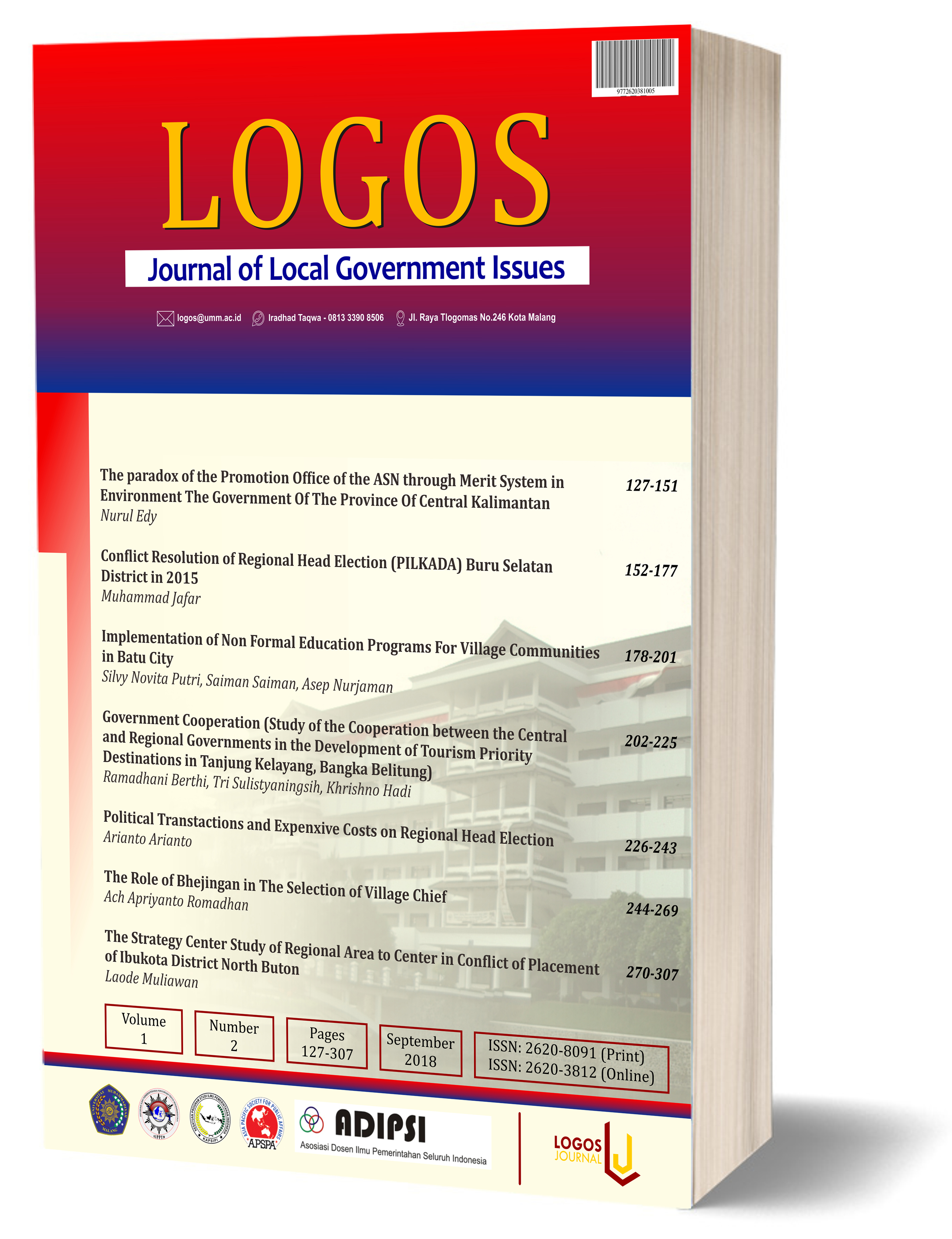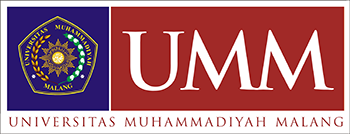Implementation of Non Formal Education Programs For Village Communities in Batu City
DOI:
https://doi.org/10.22219/logos.Vol1.No2.178-201Abstract
This study aims to explain the program implementation model implemented by the Batu City Education Office for the welfare of people who have low education or even never go to school at all. This study focuses on two things, namely the implementation of non-formal education programs for the community and who are the supporters and inhibitors of the implementation of the program. This study uses descriptive qualitative research methods, using interview techniques. The results of this study indicate that the implementation of the program carried out by the Batu City Education Office for the community has not gone well. This is due to two factors, namely the implementation factors and community factors. The first factor is the implementation factor that lacks commitment in the implementation of the program, less planned in monitoring and evaluating the program. The second factor is the people who are not too enthusiastic in participating in the program provided by the Batu City Education Agency.
Keywords: Implementation; Non-formal Education; Society
Downloads
References
Adi, I. R. (2007). Perencanaan partisipatoris berbasis aset komunitas: Dari pemikiran menuju penerapan: FISIP UI Press.
Agustino, L. (2008). Dasar-dasar kebijakan publik: Bandung: Alfabeta.
Bagong, S. (2010). Masalah sosial anak. Jakarta: Kencana Prenada Group.
Conyers, D. (1991). Social planning in the third world: Yogyakarta: UGM Press.
Muchlis, H. (2013). Kebijakan Publik: Proses, Analisis dan Partisipasi: Ghalia Indonesia. Jakarta.
Munzir, S., Ikhsan, M., & Amin, Z. (2010). Linear programming for parking slot optimization: A case study. Paper presented at the Proc. 6th IMT-GT Conference on Mathematics, Statistics and its Applications.
Nawawi, R. (2009). Islamic law on commercial transaction: IBFIM.
Praboni, A. (2009). Meteorology-driven optimum control of a multibeam antenna in satellite telecommunication. IEEE Trans. Antennas Propag., 57(2), 508-519.
Prasetya, R. (2006). Identifikasi kandidat pelayanan menggunakan metodologi SOAd dn ZFEA studi kasus di PT Kliring berjangka Indonesia. Universitas Indonesia. Fakultas Ilmu Komputer.
Rahayu, S., & Lingga, I. S. (2011). Pengaruh Modernisasi Sistem Administrasi Perpajakan terhadap Kepatuhan Wajib Pajak (Survei atas Wajib Pajak Badan pada KPP Pratama Bandung” X”). Jurnal akuntansi, 1(2), p. 119-138.
Rohman, A., & Lamsuri, M. (2009). Memahami pendidikan & ilmu pendidikan: LaksBang Mediatama bekerja sama dengan Kantor Advokat" Hufron & Hans Simaela".
Sugiyono, D. (2008). Metode Penelitian Bisnis. Bandung: Pusat Bahasa Depdiknas.
Suharto, E. (2008). Corporate Social Responsibility: What is and Benefit for Corporate. Paper presented at the Makalah Seminar, February.
Suryana, S. E. L. (2009). Implementasi Kebijakan tentang Pengujian Kendaraan Bermotor di Kabupaten Aceh Tamiang.
Tilaar, H. A. R. (2009). Kekuasaan dan pendidikan: Manajemen pendidikan nasional dalam pusaran kekuasaan: Rineka Cipta.
Wahab, S. A. (2014). Analisis kebijakan. Jakarta: Bumi Aksara.
Winarno, B. (2002). Teori dan proses kebijakan publik: Media Pressindo.
Downloads
Published
How to Cite
Issue
Section
License
Copyright (c) 2018 Silvy Novita Putri, Saiman Saiman, Asep Nurjaman

This work is licensed under a Creative Commons Attribution-ShareAlike 4.0 International License.
Authors who publish with this journal agree to the following terms:
- Authors retain copyright and grant the journal right of first publication with the work simultaneously licensed under a Creative Commons Attribution-ShareAlike 4.0 International License. that allows others to share the work with an acknowledgment of the work's authorship and initial publication in this journal.
- Authors are able to enter into separate, additional contractual arrangements for the non-exclusive distribution of the journal's published version of the work (e.g., post it to an institutional repository or publish it in a book), with an acknowledgment of its initial publication in this journal.
- Authors are permitted and encouraged to post their work online (e.g., in institutional repositories or on their website) prior to and during the submission process, as it can lead to productive exchanges, as well as earlier and greater citation of published work (See The Effect of Open Access).

This work is licensed under a Creative Commons Attribution-ShareAlike 4.0 International License.













